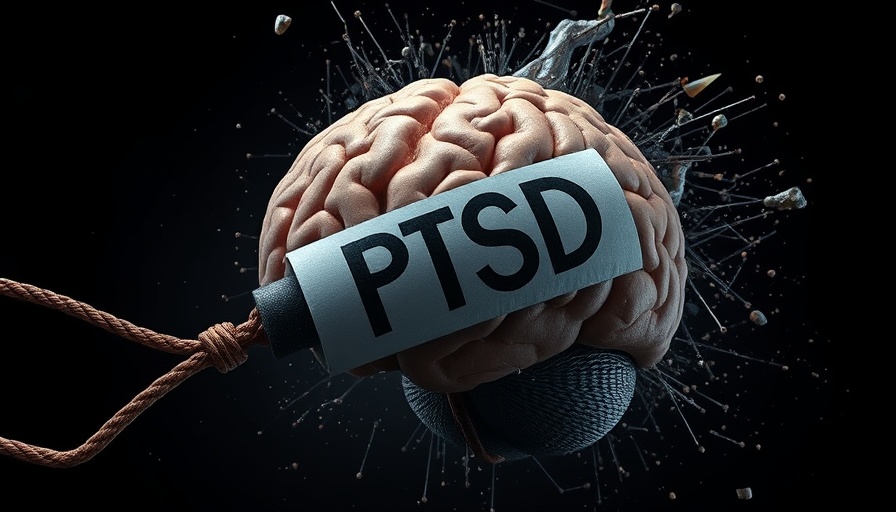
Understanding PTSD: Beyond the Surface
Post-Traumatic Stress Disorder (PTSD) is often mislabeled simply as a response to trauma. Yet, the deeper intricacies of this condition reveal it to be a complex interplay of biological and psychological factors. Many individuals suffering from PTSD battle the haunting memories of their experiences, leading to overwhelming anxiety. With traditional treatments often falling short, it’s easy to feel a sense of helplessness. This paints a poignant picture of a struggle that is not just about what happened, but how the brain processes those memories, or fails to do so.
There’s Hope: The Science Behind KDS2010
Recent research from the Institute for Basic Science and Ewha Womans University suggests that the key to unlocking the secrets of PTSD lies in a particular chemical imbalance involving GABA – a neurotransmitter known for its calming effects. As highlighted by Dr. C. Justin Lee and his team, excessive GABA produced by astrocytes disrupts the brain's natural ability to forget traumatic memories, highlighting a new target for treatment in the ongoing quest to help PTSD patients.
The discovery of KDS2010, a promising drug, is particularly exciting because it selectively inhibits the enzyme monoamine oxidase B (MAOB) responsible for the overstimulation of GABA. In animal models, KDS2010 has demonstrated remarkable effectiveness, helping subjects normalize their brain activity and effectively extinguish fear responses. As promising as it sounds, KDS2010 has also shown safety in human trials, brimming with the potential to change lives at a fundamental level.
Real Impact: What This Means for Wellness
This breakthrough could shift the paradigm in treating PTSD, especially for those who have not responded to existing therapies focused on serotonin pathways. A more tailored approach, addressing the underlying chemical mechanisms, represents a beacon of hope for many. For individuals seeking to optimize their mental wellness, knowing about such advancements is empowering, filling the gaps in understanding just how intricate our brains and emotions are.
A Community's Representation: The Human Story
Perhaps one of the most impactful aspects of research is its tentacle-like connection to the community. Families impacted by PTSD will benefit not just from innovative drugs but understanding and awareness within their neighborhoods. By highlighting narratives surrounding mental health, communities can foster compassion and support for those battling PTSD, recognizing that healing doesn’t only happen through science but through genuine human connection.
Conclusion: Joining the Journey
The discovery of KDS2010 is more than a step forward for science; it's a leap towards hope for countless lives affected by trauma. As we embrace advancements in mental health treatment, let’s also remember the individuals behind the statistics, longing for an understanding that transcends clinical definitions. If your family or someone you know is fighting similar battles, sharing these insights can be a crucial step towards support and healing. Together, we can elevate awareness and compassion for those on this journey.
 Add Row
Add Row  Add
Add 




Write A Comment